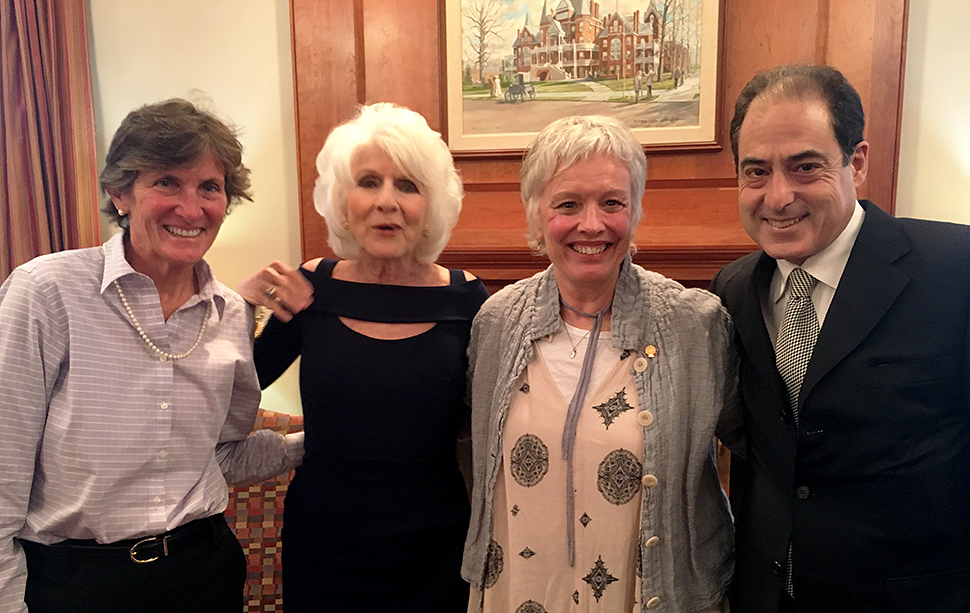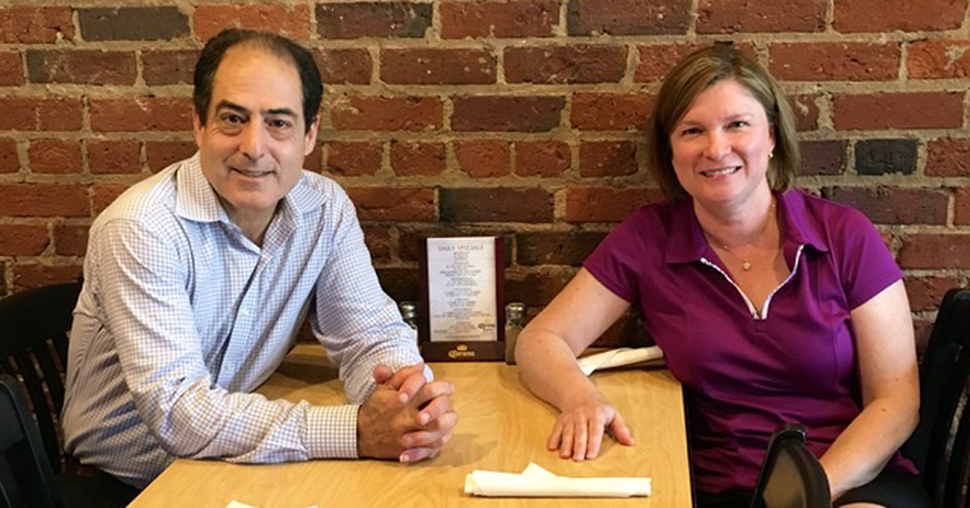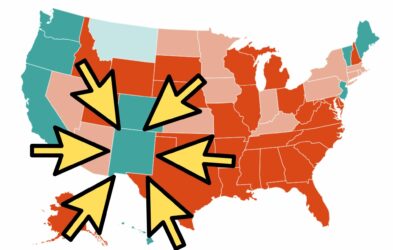This is the third in a series of interviews with grassroots advocates who are participants in Death with Dignity National Center’s new State Leadership Incubator. Today, we’re speaking with Ed Tiryakian, co-founder and executive director of Dying Right North Carolina.
Other stories in the series:
- “The Right Side of History: Cindy Merrill on Advocating for Death with Dignity in Texas”
- “The Power of Coming Together: Lisa Vigil Schattinger on Advocating for Death with Dignity in Ohio”
- “Come Hell or High Water: Valerie Lovelace on Advocating for Death with Dignity in Maine”
*
Ed Tiryakian is fired up.
As he shares the story of how he became one of North Carolina’s foremost advocates for Death with Dignity, Ed’s voice rises and his speech accelerates, reflecting the passion he has for the movement. But unlike many advocates, that passion does not arise from a personal experience of watching a terminally ill loved one suffer at the end of life. Rather, his motivation to devote his tireless energy to advocacy has to do with his fundamental belief in “personal liberty and choice with something we all face.”
Getting Involved in the Movement
Ed’s involvement with the Death with Dignity movement began in July 2015, when he saw a 60 Minutes television segment on the story of Barbara Mancini, a Pennsylvania nurse who in 2013 was arrested and charged with assisting her dying 93-year-old father with suicide. Her case was dismissed the following year, but what stuck with Ed was the unnecessary suffering both Barbara and her father had to endure.
“It so shocked me, and made me livid that his last wish—to die peacefully at home—was denied,” Ed says.
Advocacy with a Standalone Organization
Motivated to make an impact, he knew he needed to start an official advocacy organization in order to grow a grassroots network of supporters throughout North Carolina and influence lawmakers to introduce Death with Dignity legislation. Working with Lisa Roach, a law student at Wake Forest University in Winston-Salem at the time, Ed co-founded Dying Right North Carolina. Their first order of business: connecting with legislators and making a strong case for Death with Dignity.
It has been an uphill battle.
“North Carolina is a quasi-Bible Belt state, and many lawmakers here are instinctively against this type of legislation.” Ed says.
He was undeterred, scheduling meetings with senior Republican and Democratic legislators to present meticulously researched arguments backed by years of data.

Ed Tiryakian with (from left) North Carolina State Representative Pricey Harrison, best-selling author and longtime NPR radio host Diane Rehm, and North Carolina State Representative Susan Fisher.
North Carolina State Representative Pricey Harrison (D-Guilford) had introduced House Bill 611, the North Carolina Death with Dignity Act in the 2015 legislative session, which died without a hearing. Tiryakian played a key role in drafting House Bill 789, the End of Life Option Act, introduced in April 2017 by Harrison and North Carolina State Representatives Susan Fisher (D-Buncombe), Graig Meyer (D-Orange), and Verla Insko (D-Orange).
Ups and Downs of Advocacy Work
Despite his group’s successes, Ed says his work remains daunting.
“For every positive thing, there are two or three disappointments,” Ed says. Fortunately, he gains inspiration and encouragement from his fellow state leadership incubator participants.
“I look for moral support from time to time,” Ed says. The Death with Dignity program has filled that need.
“It’s really helpful to hear stories of advocates in other states,” he adds. “People share lessons and experiences. ‘How do you do it? What’s going on with you? How do you organize?’ All of that gives me the feeling that I’m in an extended family, fighting the good fight.”
Ed says that the incubator has provided much more than much-needed camaraderie.
“I’m very impressed with the resources and knowledge of the Death with Dignity National Center,” he says. “Every one of the webinar sessions in the program’s pilot impacted me in some aspect that I’ve very often reflected on or assimilated in advancing our efforts.”

Ed Tiryakian with Lisa Vigil Schattinger of Ohio End of Life Options, a Dignity50 participant.
Ed’s vision for Dying Right North Carolina has always been ambitious. Now, he says, he’s armed with the tools to achieve his long-term goal.
“I want to have supporters in each of North Carolina’s 100 counties,” Ed says. “I have contacts in 30 counties so far.”
And Rep. Harrison continues to send people his way.
“I want to hold forums in major cities across the state,” he adds, “to develop grassroots support of people to contact their state legislators.”
Stories Spark Statewide Conversation
While he still finds it challenging to make inroads with some people in a socially and politically conservative state, Ed has been surprised by how eager many people are to share their stories of caring for terminally ill loved ones.
“When I start talking about this issue with people, if they’ve had a personal experience, there’s an intuitive understanding” of why Death with Dignity is indispensable, Ed says. “When I learn more about why they’re involved, many people do have a story: ‘I saw my father, my grandfather suffer, I’ve seen that narcotics don’t eliminate pain’…”
“That’s the kind of situation that opens one’s eyes,” Ed says. “A bad end of life for a loved one is an unnecessary injustice. People that have been through that are very sympathetic” to an option that provides “an alternative of a peaceful, serene death.”
Dying Right North Carolina has sparked a statewide conversation about Death with Dignity. Ed says that makes all the setbacks worthwhile.
“Your life gains meaning when you do something for the greater good.”

2 Comments.
Linda Caleca
I live I in Greensboro NC. I have all the documents for Death with Dignity. My husband had early onset alz age 55. He is now 69 and in memory care for a year. Nobody will listen to me at that place. I have done everything by the rules. We have a living trust, advanced directives, I am his health care agent, but that is falling on deaf ears. He is currently a walking vegetable (please excuse my terminology). He doesn’t understand words, TV, can’t read any more. He has been sent to the hospital 2 times in the last month because of his aggressive behavior. I have been with him 44 years and I just don’ t know how much more of this I can take.
Mary Russell
I have had family members and friends die of cancer, slowly, and painfully. Why is it I am not able to chose if I want to suffer or die with dignity. Just as I have the right to chose to be buried or cremated, so should I have the right to chose how I want to die. I am currently watching my father get worse with Alzheimer’s and my mom fighting to take care of him herself. Why can’t a person chose if they are at a vegetable state to die with dignity. When someone is in the hospital a family chooses when to remove life support. Why can’t a person chose to pull their own plug so to speak. If I had a terminal illness I do not want to put my family through the misery of watching me slowly whither away in pain. Please give me my choice to chose.
Comments are closed.